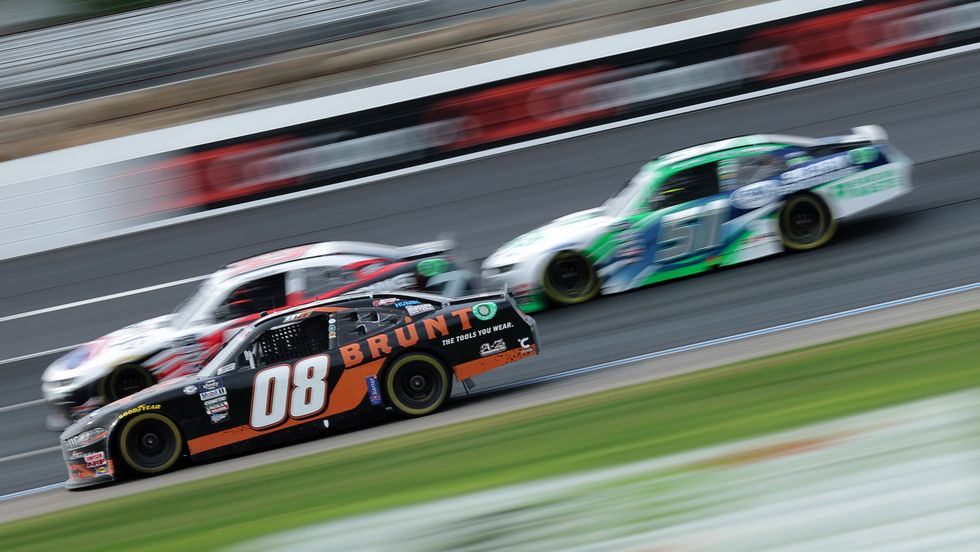NASCAR Xfinity Series driver Mason Massey may not be a household name, but the Georgia native is among more than 80 million people worldwide who stutter, a communication disorder that once kept him from winning a race because he didn’t want to be interviewed.
Massey was about 12 years old, and he was leading a Legends car race. He was new to Legends racing, and it occurred to him during the event that if he won, he had to be interviewed on the public address system on the frontstretch. He admits he let the driver who was challenging him for the lead pass him.
“As I look back on that, I hate that even happened, but that was a moment for me where I’m like, ‘OK, I’m not ever going to do that again.’ I’m not gonna let this cost me a victory,” Massey says.
“This is my goal, my dream, ever since I was 5 years old, and if I let this stutter hold me back, I will look back on this and I will hate that I went out the next week and I won. The interview was fine afterwards. It was just something I had to work through and work on.”
Since that day of resolve the now 26-year-old Massey has won 200 feature events and 11 championships in Bandolero, Legends, and dirt racing, including the 2012 U.S. Legends national championship and the 2020 Crate Late Model championship at Senoia (Georgia) Raceway. This year he’s driven a limited schedule for SS-Green Light Racing in NASCAR’s Xfinity Series with his best finish being 10th at New Hampshire.
“I feel like if I didn’t have it (stutter), I don’t think I’d be where I’m at today because it really motivated me to work hard and to get better on the race track,” Massey says. “I’m actually kind of thankful for it at this point.”
Stuttering affects four times as many males as females and more than 3 million Americans, according to The Stuttering Foundation. Approximately, 5 percent of all children go through a period of stuttering that lasts six months or more. Three-quarters of those will recover by late childhood, but about 1 percent are left with a long-term problem. Massey is one of those whose stutter remained.
“When you’re growing up with a stutter it’s always really hard, especially if you’re racing cars because you have to talk so much, communicate with your team, and do interviews,” Massey says. “As I was growing up as a little kid, it would eat me up inside if I stuttered in front of anybody, make me anxious and get me out of whack.
“It’s obviously a disconnect in the brain, from the brain to the mouth, and everybody stutters kind of differently. I went to a (speech) pathologist for years and he really helped me. I’ve learned all the tools over the years, but the biggest thing I’ve learned is to be me.”
Today, Massey’s approach to his speech issue differs from his childhood years. He no longer cares about what people think of him and if he stutters in front of people, that’s okay. Throughout his life he has worked to improve his speech, but he’s also “accepted that God has given me this for a reason.”
“I feel like He’s given me kind of a platform now that I can use to kind of put out some positivity out there in the world, because there’s not a lot of that today,” Massey says about his NASCAR platform.
“As a stutterer, you can really understand someone else who stutters, and you know what they’re going through their whole life. There’s not a whole lot out there about stuttering, and it doesn’t really get talked about much. It’s a hard thing to go through, especially as a kid.
“I just want people to know that if they have a challenge they’re going through, an issue they’re going through, they can still chase their dreams. If I can help one person, that’s all that matters to me. Everybody has their things they have to work on, and this just happens to be one of mine.”
International Awareness Day is Sunday, October 22, 2023. Share your thoughts in the comments below.
Read the full article here



